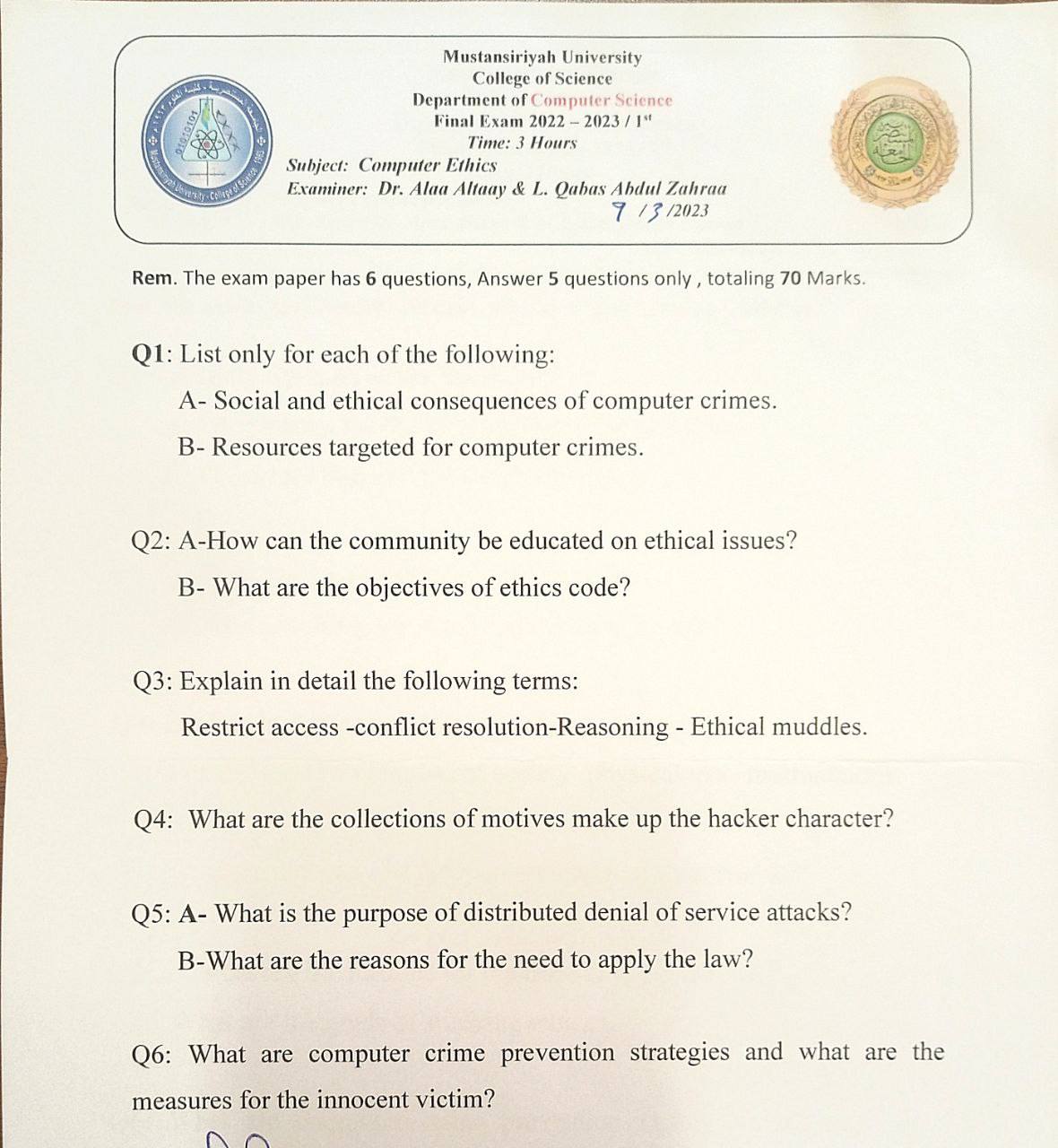List only for each of the following: A- Social and ethical consequences of computer crimes. B- Resources targeted for computer crimes. How can the community be educated on ethical... List only for each of the following: A- Social and ethical consequences of computer crimes. B- Resources targeted for computer crimes. How can the community be educated on ethical issues? What are the objectives of ethics code? Explain in detail the following terms: Restrict access - conflict resolution - Reasoning - Ethical muddles. What are the collections of motives that make up the hacker character? What is the purpose of distributed denial of service attacks? What are the reasons for the need to apply the law? What are computer crime prevention strategies and what are the measures for the innocent victim?

Understand the Problem
The question paper is assessing knowledge on computer ethics, specifically focusing on social consequences, ethical community education, definitions of terms, hacker motives, distributed denial of service attacks, and prevention strategies.
Answer
A- Privacy loss, identity theft, trust erosion. B- Computers, data, networks.
A- Social and ethical consequences include loss of privacy, identity theft, financial loss, and erosion of trust. B- Targeted resources include computers, networks, data, and personal information.
Answer for screen readers
A- Social and ethical consequences include loss of privacy, identity theft, financial loss, and erosion of trust. B- Targeted resources include computers, networks, data, and personal information.
More Information
Computer crimes can greatly impact individuals and society by causing financial loss and damaging reputations. Common resources under threat are digital systems and sensitive information.
Sources
- Introduction to Cybersecurity Ethics - scu.edu
- Cybersecurity Ethics: What Cyber Professionals Need to Know - augusta.edu
AI-generated content may contain errors. Please verify critical information